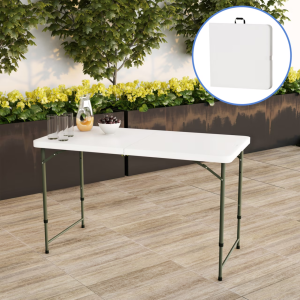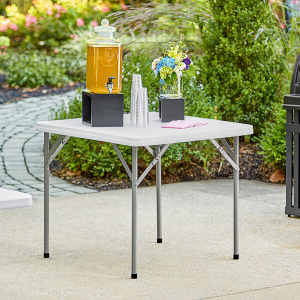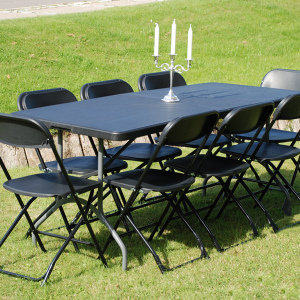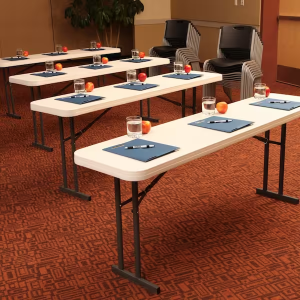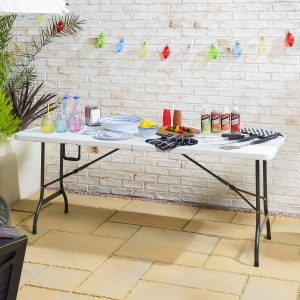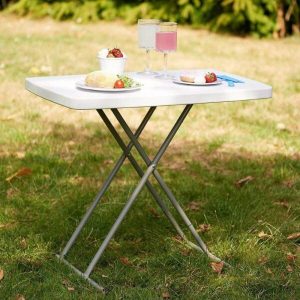More
Green Transformation: The Main Ingredient of Eco-Friendly Initiatives in Folding Table Plastic Tops
Green Transformation: The Main Ingredient of Eco-Friendly Initiatives in Folding Table Plastic Tops
Introduction
In today’s environmentally conscious world, the demand for sustainable products is on the rise. Plastic folding tables, known for their practicality and convenience, are also making strides in the realm of eco-friendliness. Some manufacturers are adopting eco-friendly initiatives by incorporating recycled materials as additives in plastic tabletop production. But what is the main ingredient behind these initiatives, and how do they work to create a more sustainable product? In this blog post, we will unveil the primary ingredient of eco-friendly initiatives in plastic folding table tops and explore their contribution to a greener world.
The Sustainable Imperative
As environmental concerns take center stage, consumers and organizations are seeking products that are not only functional but also eco-friendly. The production of plastics has long raised questions about environmental impact, but eco-friendly initiatives are changing the narrative.
Recycled Material Additives: Second Life for Plastic
The main ingredient in these eco-friendly initiatives is recycled materials, often sourced from post-consumer or post-industrial plastic waste. These materials are carefully processed and introduced into the plastic tabletop manufacturing process. The primary goal is to repurpose plastic waste into new tabletops, reducing the demand for virgin plastic and mitigating the environmental impact of discarded plastics.
Circular Economy Philosophy
These eco-friendly initiatives align with the principles of the circular economy, where materials are used and reused, reducing waste and environmental harm. By repurposing plastic waste, manufacturers are not only reducing the consumption of new resources but also diverting plastics from landfills or incineration, where they would contribute to pollution and resource depletion.
Quality and Performance
You might wonder whether recycled materials compromise the performance and quality of plastic tabletops. The answer is no. Manufacturers carefully select and process recycled materials to ensure that the final product maintains the durability, functionality, and quality that plastic folding tables are known for. The recycled materials are integrated seamlessly, creating a tabletop that is not only eco-friendly but also reliable.
A Greener Future
The integration of recycled materials into plastic folding table tops is part of a broader shift towards eco-friendly products. It’s a testament to how sustainability can be woven into our everyday lives, even in seemingly simple items like tables. This trend encourages manufacturers across industries to adopt environmentally responsible practices and create a greener future for all.
Consumer Influence
Consumers play a crucial role in this transformation. By choosing eco-friendly products, they signal to manufacturers that sustainability matters. This, in turn, drives innovation and encourages the adoption of recycled materials in various consumer goods, not just plastic tabletops.
Conclusion
The main ingredient behind eco-friendly initiatives in plastic folding table tops is recycled materials. By repurposing plastic waste, these initiatives reduce the environmental impact of plastic production and align with the principles of the circular economy. These tables are not just functional but also environmentally responsible, offering consumers a choice that makes a positive impact on the environment. The next time you set up a plastic folding table, you can appreciate the sustainability and eco-friendliness that it represents.


